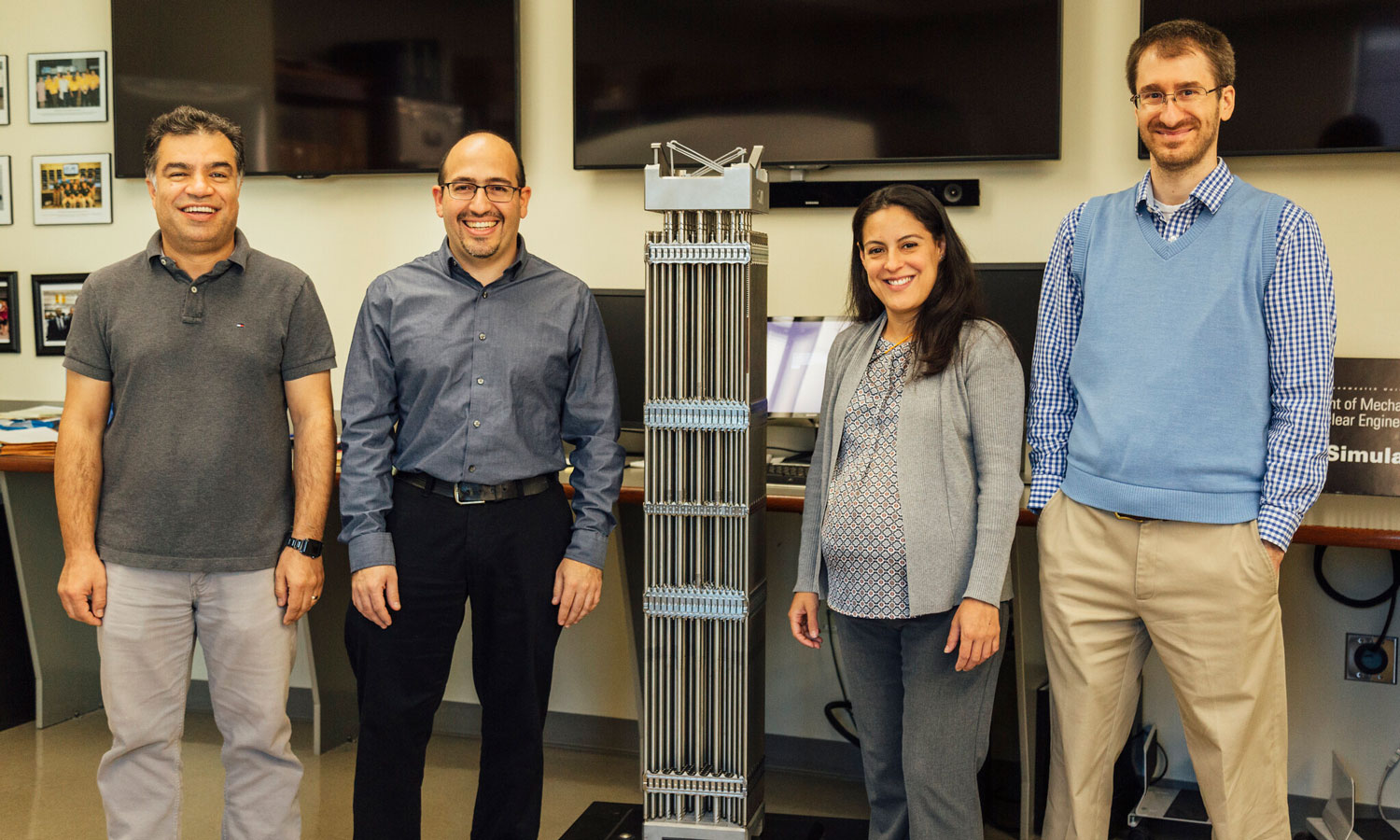NRC funds VCU Engineering team’s advanced materials investigations for improved reactor safety

The NRC has funded a VCU College of Engineering research team led by Jessika Rojas, Ph.D., to investigate the behavior of a set of nuclear materials, with the aim of improving the safety and performance of the U.S. nuclear power fleet.
To secure the nation’s nuclear power reactors, the U.S. Congress and the Nuclear Regulatory Commission (NRC) have been aggressively pursuing advanced fuel technologies for the last decade. These efforts have centered on creating accident-tolerant fuels (ATF) and developing more resilient nuclear reactor designs and materials.
The NRC has funded a VCU College of Engineering research team led by Jessika Rojas, Ph.D., to investigate the behavior of a set of nuclear materials, with the aim of improving the safety and performance of the U.S. nuclear power fleet.
VCU Engineering is home to a nationally ranked program in mechanical and nuclear engineering. Rojas, an associate professor in the program, specializes in nuclear materials, nanomaterials and radiation processing, is principal investigator in this research project. Carlos Castano, Ph.D., Braden Goddard, Ph.D., and Reza Mohammadi, Ph.D., all assistant professors of mechanical and nuclear engineering, are co-principal investigators.
The NRC awarded the team a $500,000 grant to analyze the behavior of candidate materials being considered for fabrication of nuclear fuel claddings. These claddings are tubes that encase uranium dioxide fuel pellets in current reactor designs.
The materials under investigation — iron-chromium-aluminum (FeCrAl) and a chromium-coated zirconium alloy (zircaloy) — are “smart materials” that have been engineered for enhanced oxidation resistance at high temperatures and better material performance over a wide range of conditions.
While the seemingly miraculous properties of FeCrAl and zircaloy have been evidenced in numerous operating conditions, more data about their behavior are needed.
“There is currently very little research on how these materials perform under extreme conditions, and relatively little is known about how they behave when they are stored,” Rojas said.
Over the next three years, the team will use laboratory experiments and computer simulations to study the oxidation, degradation and mechanical behavior of ATF cladding candidates subjected to rapid high-temperature excursions and dry storage conditions. This project will lead to new knowledge of FeCrAl and zircaloy’s oxidation mechanisms and kinetics, and ultimately will clarify both materials’ performance and safety limits.
Castano, a specialist in properties of materials, will conduct laboratory experiments to characterize the evolution of the ATF materials’ surface chemistry. Mohammadi, an expert in materials science and engineering, will study changes in the materials’ mechanical properties. Goddard, a specialist in radiation detection, nuclear security and nonproliferation, will use computer simulations to develop non-destructive examination tools for quality control and will validate the team’s findings.
Research partner General Electric Global Research is providing FeCrAl for these experiments and will offer industrial perspectives and guidance.
The VCU Engineering research team’s combined experimental and computational analysis will provide a robust platform for U.S. regulatory entities and fuel vendors to use in licensing commercial use of accident tolerant fuels in advanced nuclear reactors.
Categories Mechanical & Nuclear Engineering, Nuclear Engineering, Research Grants